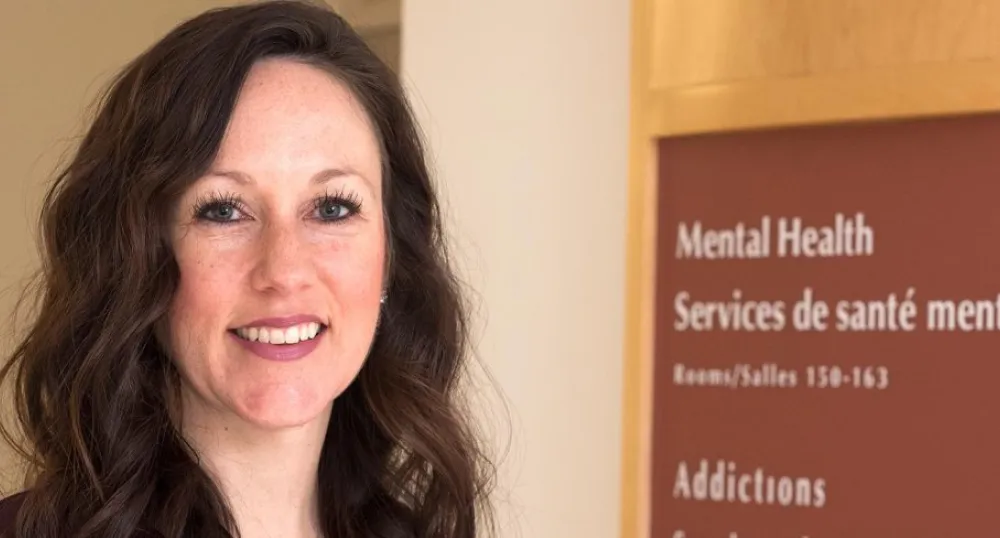Ex-pat finds job and family satisfaction at home in West Prince

Education and employment drew social worker Lorna Hutt to western Canada, but it was returning home to PEI that allowed her to use her skills among friends and family.
Hutt is currently the manager of Community Mental Health and Addictions West, overseeing approximately 60 staff who provide support to people in need at addiction centres in Summerside, Alberton, and O’Leary.
“I've been really encouraged by the work here and especially by our government recently announcing plans for multi-year investments and building of mental health and addiction services in this province,” she said.
“What I see here is a commitment to building systems that work and help people in need. The staff really want to do everything they can to assist.”
A native of West Prince, Hutt studied social work at the University of Manitoba, then she went on to obtain a Master’s degree in Social Work at the University of Calgary, while working with Alberta Health Services.
“I had the chance to do some interesting frontline work in counseling and led group work in addiction services in Red Deer,” she said. “Later, I moved to Calgary and was able to get into leadership roles, working as a clinical supervisor.”
Hutt and her husband, an Islander employed in the energy industry, began to feel the urge to return to the Island. “It’s an exciting time to be working here. I feel like I’m able to make a difference through our programs and their development,” she said.
Hutt said the work environment and the community of West Prince are a bit more intimate and personal than her work environment in Calgary had been, but she said she feels she’s able to connect personally here, and to contribute to the wellbeing of both her neighbours and her region.
Hutt said she wasn’t sure what to expect upon returning to the Island, but quickly found she was able to use her social work skills to help people.
“We wanted to come back to the Island but our kids were five and seven at the time. We thought we should either move when they were young or let them do their schooling uninterrupted. But the latter would have meant waiting for them to graduate and moving back here to retire instead of moving back and working.”
“It was an adjustment when we started working here at home, helping people with personal matters, but the flip side is that I can see the benefit of our work here and I enjoy the satisfaction that comes from contributing to our community.”
PEI has full-time, part-time and casual opportunities. Visit Health Job Opportunities.


